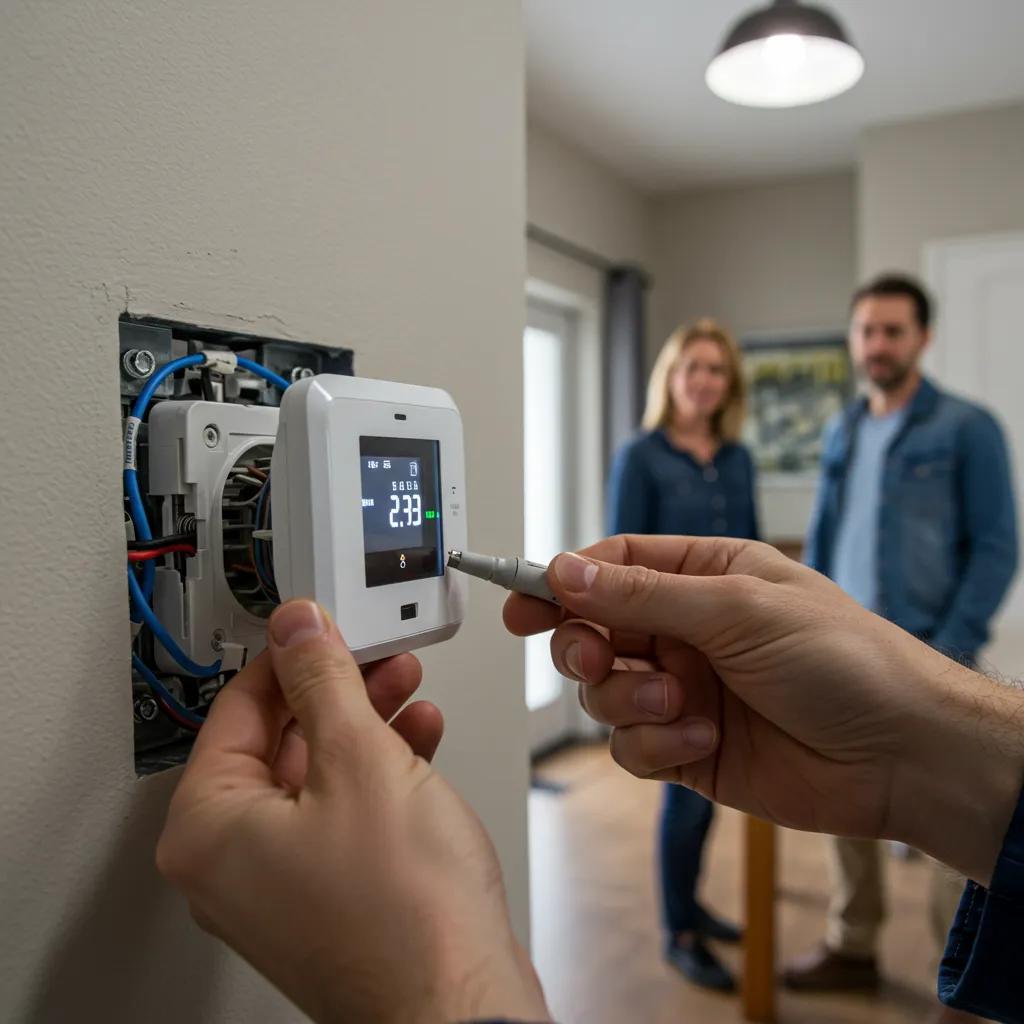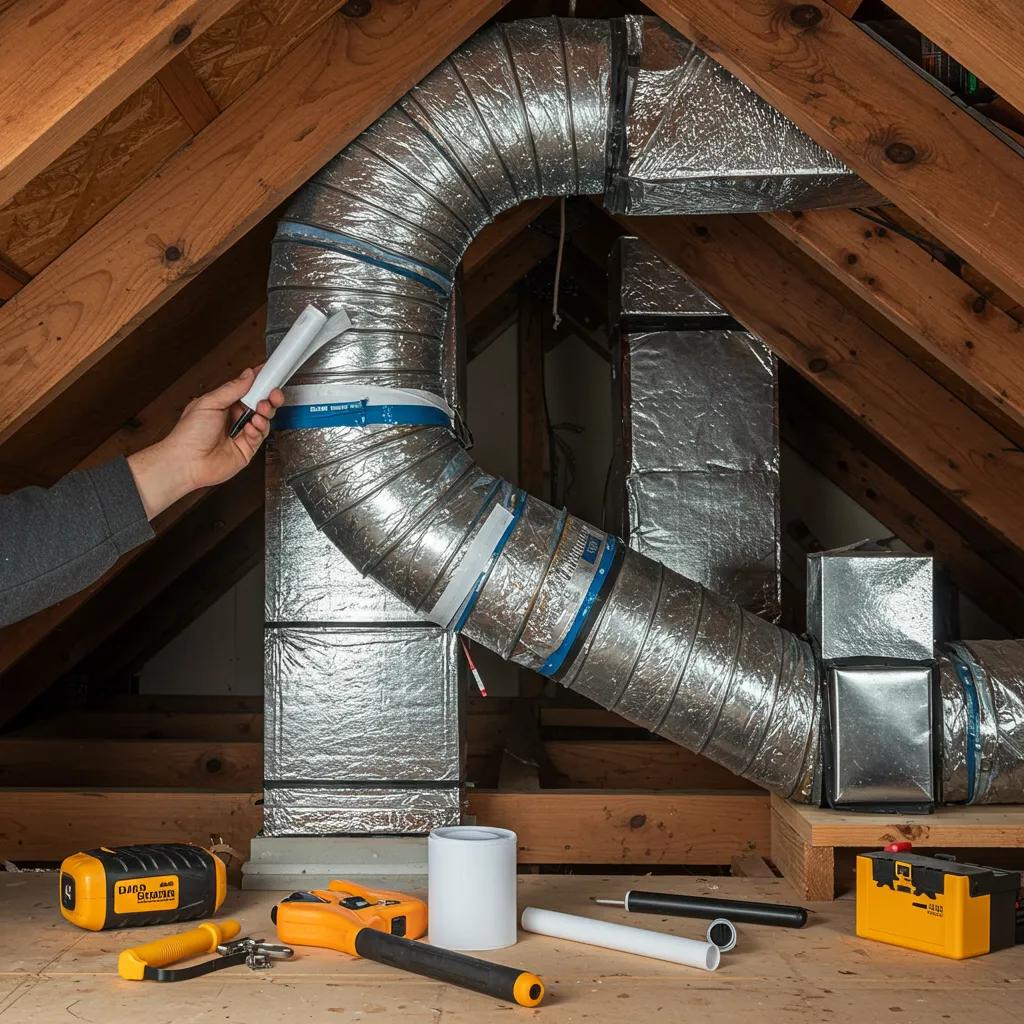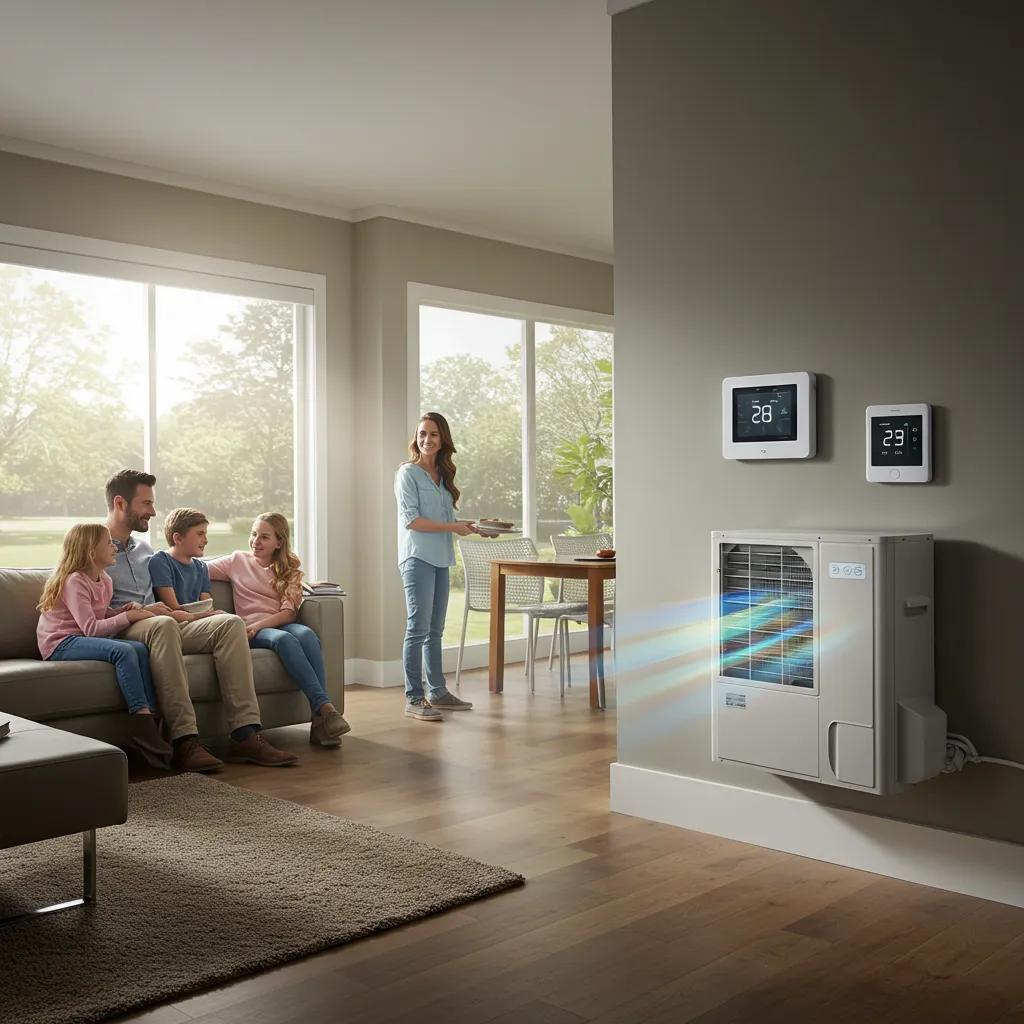Slash Your Energy Bills with Smart HVAC: Practical Savings Tips for Homes and Businesses
Energy bills in the Pacific Northwest can climb rapidly when your heating and cooling systems aren’t running at their best. Fortunately, fine-tuning your HVAC is a direct route to significant savings. This guide will walk you through why consistent HVAC upkeep is crucial, how smart thermostats and improved ductwork boost efficiency, which system upgrades offer the best bang for your buck, and how insulation and weatherproofing amplify those gains. We’ll also cover specific strategies for businesses and quick wins for homeowners you can implement right away. Each section blends technical know-how with actionable advice, highlighting how Climate Pro Heating and Cooling LLC’s expertise in energy-efficient HVAC solutions supports these efforts. By the end, you’ll have a clear understanding of the steps—from changing filters to installing heat pumps—that will lower your energy costs, enhance comfort, and extend your equipment’s lifespan.
How Does Regular HVAC Maintenance Help Slash Energy Bills?
Consistent HVAC maintenance keeps your heating and cooling components running at peak performance through regular cleaning, inspections, and adjustments. When coils and filters are free of dust, airflow improves, easing the strain on your compressors and fans. This means your system uses less electricity or fuel to maintain your desired temperature, directly cutting your energy bills and prolonging your equipment’s life.
To show you the difference it makes, the table below breaks down key maintenance tasks, how they work, and the typical energy savings you can expect:
| Task | How It Works | Energy Savings |
|---|---|---|
| Replace Air Filter | Removes airflow obstructions | Up to 15% savings |
| Clean Coils | Boosts heat exchange efficiency | 5–10% savings |
| Annual Tune-Up | Optimises refrigerant and controls | 8–12% savings |
As you can see, routine servicing prevents wasted energy and keeps your comfort levels steady. Understanding these basics sets the stage for more detailed actions that homeowners and businesses should prioritise.
What Are the Key HVAC Maintenance Tasks for Peak Energy Efficiency?
Essential HVAC maintenance includes swapping out air filters, cleaning coils, lubricating moving parts, and calibrating your thermostat. A clean filter restores proper airflow, while clean evaporator and condenser coils enhance heat transfer. Lubrication reduces friction in motors and fans, and a well-calibrated thermostat prevents unnecessary cycling. Together, these steps cut down on compressor and fan run times, leading to lower bills and better comfort.
How Often Should You Swap HVAC Air Filters to Maximize Energy Savings?
Changing your HVAC air filters every 1–3 months is key to maintaining optimal airflow and preventing dust buildup on your coils. If you have pets or a lot of dust, changing them monthly will keep your system running efficiently. In less demanding environments, you might get away with quarterly changes. Consistent filter replacement reduces pressure drop in your ductwork, cutting blower energy use by up to 15% and preventing issues like heat exchanger icing or compressor strain.
Why Are Annual Tune-Ups Crucial for Lowering Your Energy Costs?
Annual tune-ups involve checking refrigerant levels, inspecting electrical components, and adjusting controls to ensure your system operates exactly as the manufacturer intended. The right refrigerant charge maximises cooling power, while secure electrical connections and accurate controls prevent energy leaks. By catching small issues before they become big problems, tune-ups can boost seasonal efficiency by 8–12% and help you avoid costly repairs.
When Should You Opt for Professional HVAC Maintenance Instead of DIY?
While DIY tasks like changing filters and basic cleaning are manageable, professional servicing is vital for in-depth inspections, handling refrigerants, and safety checks. Always call a qualified technician for tasks like coil cleaning, calibrating complex controls, or checking combustion safety on gas furnaces. Expert maintenance ensures your system meets local standards and uses advanced tools to achieve maximum efficiency gains.
The maintenance tasks we’ve covered lay the groundwork for even more advanced energy-saving technologies, like smart thermostats.
How Can Smart Thermostats Boost Your HVAC Energy Savings?

Smart thermostats optimise your heating and cooling by learning your habits, automatically adjusting temperatures, and allowing remote control. By reducing system runtime when you’re away and fine-tuning schedules based on real-time data, these devices can cut HVAC energy use by up to 10%. Integrating them with humidity and occupancy sensors further refines performance to match your local climate.
Before we dive into their programmable features, let’s look at the key attributes that drive savings:
- Wi-Fi connectivity lets you schedule and adjust settings remotely.
- Learning algorithms adapt temperature settings to your daily routines.
- Geofencing uses your smartphone’s location to switch modes when you leave or approach home.
- Energy reports offer valuable insights into your consumption patterns.
These features work together to prevent unnecessary system operation and ensure comfort only when you need it. Now, let’s explore the specific benefits of programmable thermostats in lowering your bills.
What Features Should You Look For in a Smart Thermostat?
Look for smart thermostats that support multi-stage heating and cooling, are compatible with heat pumps, offer user-friendly scheduling, and provide energy usage analytics. Models that integrate with voice assistants, manage humidity, and send filter change reminders are excellent choices. These capabilities ensure smooth operation with various HVAC systems and offer data-driven guidance for further efficiency improvements.
How Do Programmable Thermostats Help Reduce Heating and Cooling Expenses?
Programmable thermostats allow you to set different temperature levels for when you’re home and away, potentially cutting energy use by up to 10%. For instance, lowering the heat by 7°F for eight hours can save about 10% on your heating costs. By automating these temperature changes, you avoid manual adjustments and ensure your system only runs when necessary.
The concept of home automation, which includes smart thermostats, is central to reducing energy costs through integrated systems.
Smart Thermostats for Domestic Automation and Energy Conservation
Domestic automation can be defined as the integration of electrical and mechanical devices, along with relevant data, with remote management applications and tools to assist users in reducing expenditure.
Smart thermostats for home automation systems and energy savings from smart thermostats, O Ayan, 2018
How Does Smart Thermostat Installation Work in Pacific Northwest Homes?
In homes across Seattle, Bothell, or Everett, installing a smart thermostat starts with confirming it’s compatible with your existing HVAC wiring and system type. A technician will then mount the new device, connect the wiring, and set up the network. Once paired with your home’s Wi-Fi and HVAC system, the installer will customise schedules based on local weather and your household’s routines, ensuring optimal performance in our region’s cool, damp climate.
What Are the Advantages of Integrating Smart Thermostats with Home Automation?
Connecting your smart thermostat to a home automation platform allows for coordinated control of your lighting, ventilation fans, and window shades. When occupancy sensors detect you’re away, the system can automatically lower temperature settings and close blinds, maximising passive solar heat. This unified approach leads to greater energy savings, enhanced comfort, and simpler management of all your connected devices.
Smart thermostats offer even greater benefits when your ductwork is optimised to prevent energy loss.
Why Is Ductwork Optimisation Crucial for Lowering HVAC Energy Costs?

Optimised ductwork minimises air leaks and heat loss in your distribution system, ensuring that conditioned air reaches your living spaces instead of escaping into attics or crawl spaces. Proper sealing and insulation maintain the intended airflow, reduce fan energy consumption, and help maintain your set temperatures with less system runtime. Since leaky ducts can waste up to 20% of your system’s output, addressing these gaps is essential for efficient operation.
Various techniques can be used to optimise your ductwork, as shown below:
- Aeroseal duct sealing fills leaks from the inside without needing to dismantle anything.
- Fibreglass or foam insulation wraps prevent heat loss through conduction in unconditioned attics.
- Manual mastic sealing and metal tape are used to fix visible gaps and joints.
Effective optimisation combines these methods to ensure consistent airflow and maximise system efficiency. Next, we’ll look at how specific actions lock in these gains.
How Does Duct Sealing Prevent Air Leaks and Save Energy?
Duct sealing uses mastic or aerosol-based methods to close up gaps, reducing leaks by as much as 90% in some cases. Sealed ducts maintain the correct static pressure and airflow, which cuts down on blower run times and stops conditioned air from escaping into uninsulated areas. This reduction in lost air directly translates into lower electricity or fuel bills.
What Are the Best Duct Insulation Methods for the Pacific Northwest?
In the damp attics common in the Northwest, closed-cell foam and high-density fibreglass wraps are excellent choices because they resist moisture and maintain their R-value over time. Closed-cell spray foam acts as both an air barrier and insulation in one step, while foil-faced fibreglass rolls offer a cost-effective wrapping solution. Both methods reduce heat transfer, which is crucial during humid summers and cool winters.
How Can You Identify and Fix Airflow Problems in HVAC Ductwork?
Airflow issues often show up as uneven temperatures in different rooms, whistling noises, or unusually high fan power usage. A professional can perform a duct leakage test using pressurisation equipment and smoke pencils to pinpoint leaks. Once found, targeted sealing and insulation can restore proper airflow, balance pressure, and improve overall system efficiency.
With optimised airflow, energy-efficient air conditioners can deliver even greater savings.
What Are the Best Energy-Efficient HVAC Upgrades to Cut Energy Bills?
Investing in high-efficiency equipment, such as variable-speed heat pumps and ENERGY STAR certified air conditioners, leads to substantial long-term savings. Modern heat pumps can achieve Seasonal Energy Efficiency Ratio (SEER) ratings above 20 and Heating Seasonal Performance Factor (HSPF) ratings over 10, reducing energy consumption by 30–50% compared to older units. Understanding these ratings helps homeowners select the right system for their needs.
| Upgrade Option | Efficiency Rating | Typical Savings | Why It’s Important |
|---|---|---|---|
| Variable-Speed Heat Pump | HSPF 10+ | 30–50% reduction | Provides precise heating control and efficient air-source heating |
| High-Efficiency Air Conditioner | SEER 20+ | 20–40% reduction | Delivers superior cooling performance with lower electricity use |
How Do Heat Pumps and High-Efficiency Air Conditioners Save Energy?
Heat pumps move heat rather than generating it, using electricity much more efficiently and delivering up to three times the energy they consume. High-efficiency air conditioners use advanced compressors and coil designs to achieve higher SEER ratings, which reduces their run times and lowers peak electricity demand.
What Are SEER and HSPF Ratings, and Why Do They Matter?
SEER measures cooling output over a season relative to the energy consumed; higher numbers mean greater efficiency. HSPF measures heating output per unit of energy used. Systems that meet SEER 20+ and HSPF 10+ standards outperform older units by 30–50%, significantly cutting energy costs and reducing environmental impact.
How Can Homeowners Access Government Rebates for HVAC Upgrades in the UK and PNW?
In the Pacific Northwest, local utility companies and state energy offices often provide rebates for ENERGY STAR certified systems, typically ranging from $300 to $1,000 per installation. UK homeowners might be eligible for the Boiler Upgrade Scheme or Green Homes Grant. Checking your local incentive programs is a great way to maximise savings on high-efficiency equipment.
When Is It Time to Replace Your Old HVAC System for Better Savings?
It’s time to replace systems that are over 15 years old or require frequent repairs, especially if their seasonal efficiency has dropped below SEER 13 or HSPF 7. Consistently rising energy bills and declining reliability are clear signs that investing in new equipment will pay for itself quickly through immediate performance improvements and lower operating costs.
Upgrades are only part of the solution—improving your building’s envelope further enhances HVAC efficiency.
How Does Home Insulation and Weatherproofing Boost HVAC Energy Efficiency?
Proper insulation and air sealing reduce heat transfer through your walls, attics, and floors, which lowers the heating or cooling demand on your HVAC systems. By maintaining comfortable indoor temperatures with minimal equipment runtime, homeowners can see up to a 25% reduction in energy bills. Weatherproofing around doors and windows prevents drafts that lead to uneven comfort and overworking your system.
Key techniques for improving your building’s envelope efficiency include:
- Upgrading loft and wall insulation to R-values recommended for your region.
- Applying weatherstripping around doors and window frames to stop air infiltration.
- Using caulk to seal gaps around baseboards, plumbing penetrations, and electrical outlets.
What Are the Most Effective Insulation Techniques for Reducing Heating and Cooling Bills?
Increasing attic insulation to R-49 and wall insulation to R-21 significantly reduces heat loss through conduction. Spray foam in rim joists seals leaks while adding insulation value, and insulated sheathing on exterior walls eliminates thermal bridging. Together, these measures stabilise indoor temperatures and reduce the workload on your HVAC system.
How Do Weatherstripping and Caulking Improve HVAC Performance?
Applying adhesive foam strips to door frames and silicone caulk to window joints seals air gaps up to 4 mm wide. This reduces drafts, prevents moisture from entering your home, and decreases the number of temperature cycles your HVAC system needs to run, ultimately cutting runtime and energy consumption.
Why Are Windows and Doors Major Sources of Energy Loss?
Windows and doors are responsible for about 30% of a home’s heat loss. Single-pane glass and poorly sealed frames allow conditioned air to escape, forcing your HVAC system to work harder. Upgrading to double- or triple-glazed windows with low-e coatings and tightly sealed door assemblies drastically reduces these losses.
Enhancing insulation and sealing creates the ideal conditions for tailored commercial strategies.
Conclusion
Implementing smart HVAC solutions can significantly reduce energy bills while enhancing comfort in both homes and businesses. By prioritizing regular maintenance, investing in energy-efficient upgrades, and optimizing ductwork, you can achieve substantial long-term savings. The information provided empowers you to make informed decisions that lead to a more efficient and sustainable living environment. Start your journey towards energy savings today by exploring our expert HVAC services and solutions.


